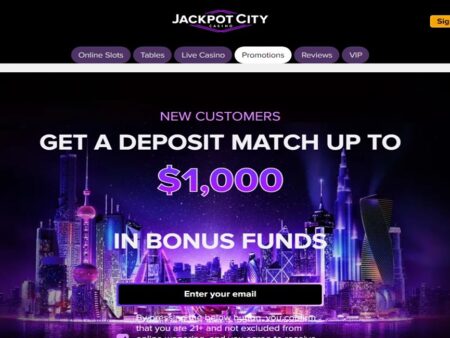Estimated reading time: 16 minutes
Online Gambling Laws in Scandinavia
Online Gambling Laws in Scandinavia / At first glance, the term “Scandinavia” might suggest a unified nation, but it actually refers to a region made up of three distinct yet culturally interconnected countries: Denmark, Norway, and Sweden. Some may even expand this to include Finland and Iceland, as these nations also share historical and cultural bonds with Scandinavia. Known for their high standards of social welfare, forward-thinking policies, and balanced approach to governance, Scandinavian countries have earned a reputation for being among the most progressive in the world. This progressive nature is also evident in their handling of online services, particularly within the online casino sector, where each country has crafted its own unique regulatory system.
Scandinavians tend to prioritize societal well-being, seeking practical solutions to complex issues and using regulations as a means of safeguarding their citizens. With this commitment to public welfare, the regulation of online casinos in Scandinavia is characterized by stringent, transparent, and thoughtful measures designed to promote a safe and enjoyable gaming experience. While Denmark, Norway, and Sweden each have their own distinct approaches to gambling regulation, they share common values: protection of players, responsible gaming, and fostering a trustworthy environment.
In this overview, we’ll dive into how each of these nations governs their online casinos, exploring the innovative methods they employ to protect their people while also supporting a growing digital entertainment industry.
Sweden’s Holistic Approach to Online Gambling: Licensing and Player Protection
In recent years, Sweden has transformed its approach to online gambling, building a regulatory framework focused on player safety, market transparency, and responsible gambling. Although online gambling has been part of Swedish entertainment for decades, it wasn’t until January 2019 that the Swedish government introduced comprehensive legislation – the Swedish Gambling Act – that fully reshaped the market. Managed by the Swedish Gambling Authority, known as Spelinspektionen, this law brought structure to the market, prioritizing consumer protection and fair play for all participants. This shift has established Sweden as a global example of how thoughtful regulations can benefit players, operators, and society as a whole.
Before the 2019 reform, the Swedish gambling market was relatively unregulated, creating potential risks for consumers and allowing offshore operators to access the market without accountability. With Spelinspektionen now actively managing all licenses, Sweden has imposed strict requirements that make sure any operator in the market is focused on ethical and responsible practices. One of the most significant parts of this shift was the introduction of five-year licenses for operators, a process that involves rigorous evaluation. This practice aligns with the standards seen in other Scandinavian countries like Denmark, ensuring that only responsible and well-regulated operators remain active in the market.
Licensing and Compliance: A High Standard
Obtaining a Swedish gaming license isn’t easy, and that’s by design. Operators undergo detailed assessments to ensure they meet the country’s high standards, which include not only technical compliance but also a demonstrated commitment to consumer welfare and market integrity. The Swedish Gambling Authority conducts thorough background checks on operators, assessing financial stability, technical security, and anti-money laundering (AML) procedures. Once approved, operators are held to ongoing compliance checks, ensuring that they consistently meet the stringent standards throughout the five-year license period.
To prevent the risks associated with unlicensed operators, Sweden has implemented measures to block unauthorized websites and even penalize operators attempting to access the market without approval. These steps discourage unauthorized gambling while steering players toward licensed and regulated platforms that adhere to Sweden’s standards for fairness and safety.
Player Protection: A Core Priority
At the heart of the Swedish Gambling Act is a strong commitment to player protection. To this end, Spelinspektionen enforces strict guidelines for online casinos, requiring them to incorporate measures that support safe and responsible gaming practices. Every licensed platform must include self-exclusion tools, allowing players to voluntarily restrict their access to gambling activities. The creation of Spelpaus, a national self-exclusion system, is a groundbreaking initiative that allows individuals to block themselves from all licensed gambling sites in Sweden, effectively reducing the risk of problem gambling. Players can choose various exclusion periods, from short breaks to indefinite bans, making Spelpaus a powerful tool for those seeking control over their gambling habits.
In addition to self-exclusion, operators must also provide tools that let players set limits on deposits, losses, and playing time. This hands-on approach encourages individuals to maintain control over their gaming activities, promoting a balanced and enjoyable experience. Operators are further required to monitor gambling behaviors and intervene if a player shows signs of potential addiction. This emphasis on responsible gaming not only protects players but also cultivates trust in the Swedish online gambling sector, setting it apart from many other markets worldwide.
Access to Support and Resources
Beyond self-exclusion and gambling limits, the Swedish Gambling Act mandates that operators actively provide access to resources for gambling addiction support. Licensed operators must offer visible links to organizations that specialize in gambling addiction assistance and make it easy for players to access the help they need. This requirement aligns with Sweden’s goal of ensuring that players can enjoy the excitement of online gambling within a framework that safeguards their well-being. The focus on education and awareness regarding the risks of gambling further reinforces the Swedish government’s commitment to promoting a safe and informed player base.
Financial Transparency and Taxation
Sweden’s regulatory framework not only emphasizes consumer protection but also incorporates financial oversight, ensuring that operators contribute to the national economy. Licensed operators are subject to a 22% tax on their net gaming revenue, a rate that underscores Sweden’s commitment to maintaining a fair and transparent market. This increase from the initial 18% tax rate reflects the country’s dedication to responsible gambling management while simultaneously discouraging excessive profits at the expense of players. By creating a clear tax structure, Sweden establishes an environment where both operators and the government benefit, fostering long-term sustainability within the online gambling sector.
Enforcement and Market Integrity
To uphold the integrity of the market, Spelinspektionen has the authority to impose fines, revoke licenses, and enforce penalties on operators that fail to comply with regulations. This active oversight acts as a deterrent against unethical practices and encourages operators to uphold the highest standards in the industry. The Swedish Gambling Authority also collaborates with international regulatory bodies, working together to share information and combat cross-border gambling fraud, ultimately contributing to a more secure and transparent global market.
A Model for Responsible Gaming
Sweden’s online gambling regulations are a model of how thoughtful policies can promote responsible gaming while allowing players to enjoy a safe and entertaining experience. With stringent licensing, transparent taxation, and a strong focus on player protection, the Swedish system provides a balanced approach that serves as an example for other countries navigating the complexities of online gambling regulation. By continually refining its laws and adapting to emerging trends, Sweden remains committed to ensuring its gambling landscape is as fair, secure, and responsible as possible.
Through this comprehensive regulatory approach, Sweden not only protects its citizens but also paves the way for a sustainable and thriving online gambling market. With Spelinspektionen’s proactive stance, Swedish players can enjoy online gaming with peace of mind, knowing that they are participating in a system designed with their best interests at heart.
Norway’s Restrictive Online Gambling Market: A Monopoly for Player Safety
Norway stands out in the Scandinavian online gambling scene with its highly restrictive, state-controlled model. Unlike its neighbors, Denmark and Sweden, who have opened their markets to licensed private operators, Norway keeps gambling largely under government control through a monopoly. This approach is rooted in the Norwegian government’s commitment to player protection and preventing gambling addiction, with all online and offline gambling primarily managed by two state-owned entities: Norsk Tipping and Norsk Rikstoto.
The Structure of Norway’s Gambling Monopoly
Norway’s gambling monopoly means that Norsk Tipping, responsible for sports betting, lotteries, and casino games, and Norsk Rikstoto, overseeing horse race betting, are the sole legal providers of most gambling services within the country. These two entities operate under the strict oversight of the Norwegian government, which views gambling as a public health issue rather than a source of entertainment.
This centralized system ensures that gambling is not commercially exploited, and, instead, profits are directed back into society. Any profits from Norsk Tipping and Norsk Rikstoto go to funding social, sports, and cultural programs, making gambling revenue a contributor to Norway’s welfare system.
Limited Options for Private Operators
Unlike Denmark and Sweden, which allow licensed private operators, Norway’s restrictive framework leaves little room for private or international competition. The government enforces this monopoly through stringent regulations, such as blocking international gambling sites, restricting advertising, and even limiting payment processing options for transactions related to unlicensed gambling platforms.
However, Norway does make certain allowances for private operators when it comes to remote gambling activities that take place outside of Norway but are still accessible to Norwegian residents. Players in Norway sometimes access international casinos and betting platforms, though these options remain limited due to the government’s efforts to block access and curb their use.
Key Regulations Aimed at Player Safety
Norway’s gambling regulations prioritize player protection. Here are some of the essential measures enforced by the state:
Strict Age Verification: Norway strictly enforces a minimum age requirement of 18 for all forms of gambling, ensuring underage individuals are kept out of gambling activities. Norsk Tipping and Norsk Rikstoto use comprehensive verification systems to prevent minors from gambling, requiring official identification.
Betting Limits and Loss Controls: To prevent excessive gambling and help players manage their spending, Norsk Tipping sets weekly and monthly limits on betting amounts. Players must pre-register to set their betting and loss limits, and the system monitors their betting patterns to encourage responsible play. This proactive approach reduces the risk of problem gambling and financial strain.
Self-Exclusion Programs: Norsk Tipping offers a self-exclusion option, allowing players to voluntarily exclude themselves from betting for a specified time. Players can also take advantage of the national self-exclusion program, which blocks them from all types of gambling. This aligns with Norway’s focus on harm reduction, supporting individuals who may need help controlling their gambling activities.
Public Awareness Campaigns: The Norwegian government runs frequent public awareness campaigns to educate the public about the risks of gambling and the signs of gambling addiction. By focusing on public health, these campaigns aim to reduce gambling harm and increase awareness of the resources available to those in need of support.
Norway’s Fight Against Unlicensed Gambling
Despite its monopoly, Norway faces challenges with offshore online gambling sites that attract Norwegian players. Many Norwegian residents access international sites, which may not comply with Norway’s responsible gambling standards, lured by potentially larger bonuses and more gaming options.
To combat this, Norway has implemented various measures, including:
IP Blocking: The government works with internet providers to block access to certain offshore gambling sites. Although this approach does not eliminate access entirely, it is a deterrent and makes it more difficult for players to access unlicensed platforms.
Payment Processing Restrictions: Norway has directed financial institutions to block transactions related to unlicensed gambling sites, which limits the ability of Norwegian players to deposit funds into offshore accounts. By restricting payment channels, Norway discourages players from accessing these sites.
Advertising Ban: Unlicensed gambling operators are prohibited from advertising in Norway, further limiting their reach. Norsk Tipping is the primary entity allowed to promote gambling products, and its marketing is carefully regulated to ensure it does not encourage excessive gambling.
Criticisms and Challenges of the Norwegian Monopoly
While Norway’s monopoly model has succeeded in keeping gambling relatively controlled, it has also faced criticism. Some argue that this restrictive approach limits players’ freedom to choose gambling options and may drive them toward unregulated sites.
Others question the monopoly’s effectiveness in handling gambling addiction and problem gambling. They suggest that allowing licensed, regulated private operators could provide more varied options and help draw players away from illegal sites. Additionally, some advocates point out that private operators would also have to comply with Norway’s strict responsible gambling regulations, potentially creating a balanced and competitive market.
The Future of Norway’s Online Gambling Market
As online gambling grows globally, there is ongoing debate in Norway over whether the monopoly model will continue to be effective. Advocates for reform argue that introducing a licensing system similar to those in Denmark or Sweden could increase transparency and protect players without sacrificing Norway’s commitment to responsible gambling.
Norwegian regulators have shown little interest in moving away from the monopoly system, emphasizing that the current model is designed to protect citizens rather than promote gambling. For now, the state-controlled approach is likely to remain in place, with Norsk Tipping and Norsk Rikstoto continuing to be the only legal options for online gambling in Norway.
Norway’s restrictive, state-controlled approach to online gambling sets it apart within Scandinavia and reflects the country’s commitment to player protection and public welfare. By centralizing gambling operations, Norway seeks to minimize gambling-related harm and keep gambling activity aligned with public health priorities. Despite facing challenges with offshore sites, the Norwegian government remains steadfast in its belief that a monopoly system is the best way to protect its citizens. As the industry evolves, it will be interesting to see how Norway adapts its regulatory framework while maintaining its focus on player safety and responsible gambling.
Denmark’s Model for Online Gambling: A Balanced Approach to Regulation and Consumer Protection
Denmark has established itself as a leader in online gambling regulation, with a robust, consumer-centered approach that puts player welfare first. Overseen by the Danish Gambling Authority, known as Spillemyndigheden, Denmark’s gambling market stands as a benchmark for how online gambling can be safely managed, ensuring that players are protected while allowing operators to compete fairly. Denmark’s regulatory framework has been recognized for its success in balancing stringent rules with a market that remains open and competitive.
The Licensing Process: Rigorous Standards for Operator Approval
To operate legally within Denmark’s gambling market, every online casino must obtain a license from the Danish Gambling Authority, even if the operator is based outside Denmark. The licensing process is far from a simple application; it’s a rigorous vetting process designed to ensure that only trustworthy and financially stable operators are approved. This standard is important because it reduces the risk of unreliable operators entering the market and maintains a high level of trust in the industry.
Licenses are not granted indefinitely. Operators are required to renew their licenses every five years and submit additional information for continuous vetting. This ensures that companies continue to comply with Denmark’s strict standards over time, helping maintain a consistently safe environment for consumers.
Focus on Player Protection and Responsible Gambling
Denmark’s approach to player protection is comprehensive. The Danish Gambling Authority mandates that all online casinos implement clear measures for responsible gambling. This includes offering self-exclusion tools, allowing players to take a break or limit their gambling if needed. Operators must also make it easy for players to access information about responsible gambling practices, including contacts for gambling support services.
One significant feature of Denmark’s system is the ROFUS (Register of Voluntary Excluded Players), a national self-exclusion registry that lets players exclude themselves from all gambling activities in the country. Players who register in ROFUS can choose exclusion periods ranging from a temporary ban to a permanent one, which helps address problem gambling on a broad scale. Every licensed operator in Denmark must check new users against ROFUS, ensuring that self-excluded players cannot gamble.
Protecting Minors and Vulnerable Groups
To prevent underage gambling, Denmark enforces strict age verification processes. Online casinos must ensure that all players are 18 or older, using reliable methods to verify age and identity. In addition to age verification, Danish regulations require operators to be vigilant about targeting vulnerable groups, such as young adults and people prone to gambling addiction.
Marketing practices are closely regulated as well, with the Danish Gambling Authority setting guidelines to prevent misleading or aggressive promotions. This includes a ban on “unrealistic” advertising that could encourage irresponsible gambling. Promotions must be transparent, outlining clear terms and conditions, and operators are restricted from aggressively targeting players with frequent or high-value promotional offers. This helps keep the gambling environment focused on entertainment rather than fostering excessive gambling behaviors.
Ensuring Financial Transparency and Integrity
Denmark’s commitment to transparency extends beyond just licensing and advertising. The Danish Gambling Authority requires operators to follow strict financial reporting rules to prevent fraud and money laundering. All transactions are monitored to ensure that funds are handled responsibly and ethically. Additionally, operators must demonstrate financial stability to prevent bankruptcy risks, which could result in players losing funds.
The Danish Gambling Authority also collaborates with financial institutions to monitor suspicious activity and ensure that the gambling market remains fair and secure. By regulating the flow of money within the gambling industry, Denmark helps ensure a safer gambling environment and deters illegal practices.
Adapting to New Challenges: Anti-Money Laundering (AML) and Know Your Customer (KYC)
In response to evolving global standards, Denmark has recently strengthened its anti-money laundering (AML) and Know Your Customer (KYC) regulations. AML and KYC protocols are in place to ensure that operators understand the identity of their customers and can detect suspicious activities, such as large deposits and withdrawals. These regulations are crucial for maintaining the integrity of the gambling industry and preventing it from being exploited for illicit financial activities.
For players, this means enhanced security and peace of mind, as they know their chosen platforms are complying with global best practices for financial safety. The Danish Gambling Authority conducts regular audits to ensure that operators remain compliant with these protocols, and any breaches can lead to fines or license revocation.
Technological Innovation in Denmark’s Gambling Regulations
Denmark has leveraged technology to make gambling safer and more transparent. The Danish Gambling Authority uses advanced tools to monitor operator compliance in real time. This proactive approach allows them to identify and address issues quickly, without waiting for formal complaints or reports. Through real-time monitoring and data analysis, they can ensure operators remain compliant with all regulatory requirements, protecting players from potential exploitation.
The use of technology also extends to user behavior tracking, with some platforms integrating machine learning to detect patterns that may indicate problem gambling. When signs of potential gambling harm are detected, operators can intervene, offering support or even restricting a user’s account if necessary. This approach underscores Denmark’s commitment to player safety while maintaining a tech-savvy regulatory landscape.
Taxation and Economic Impact
The Danish government benefits from a fair but firm taxation model for the gambling industry. Operators are taxed at 20% on gross gaming revenue (GGR), which is used to fund public services and social initiatives. This balanced tax rate encourages licensed operators to enter and remain in the Danish market, while also generating revenue for the public good. The tax model supports Denmark’s goal of keeping the gambling industry safe and regulated while ensuring a significant contribution to the economy.
International Recognition and Influence
Denmark’s model has gained international respect, with many countries viewing its regulatory framework as a standard for responsible gambling. The success of Denmark’s system is evident in the high levels of consumer trust and the strong market participation by reputable operators. The Danish Gambling Authority has collaborated with other European regulatory bodies, sharing insights and best practices, which has helped shape gambling regulation across the continent.
Denmark’s experience demonstrates that it is possible to create a balanced market that protects players while allowing businesses to thrive. The Danish model has not only strengthened consumer protection in Denmark but has also influenced gambling regulations worldwide, proving the value of a balanced and transparent approach.
Denmark’s gambling regulation is a standout example of how to balance industry growth with player protection. With its rigorous licensing process, strict financial controls, and focus on responsible gambling, Denmark has set a high standard for online gambling regulation. The Danish Gambling Authority’s proactive and tech-driven approach to monitoring ensures compliance, while programs like ROFUS provide players with the tools to gamble safely.
The success of Denmark’s model highlights that effective gambling regulation is achievable when focused on consumer safety and market transparency. Denmark’s approach has not only protected players but has also enhanced the industry’s integrity, setting a benchmark that other nations can look to as they seek to improve their own regulatory frameworks.
Online Gambling Laws in Scandinavia
While regulations around online casinos may vary across Scandinavian and Nordic countries, these nations share important goals, particularly in terms of consumer protection and ethical gameplay. Denmark, Sweden, and Norway, for example, each have robust regulatory frameworks that prioritize player safety and fair play. Licensed operators must adhere to strict standards to ensure secure transactions, transparent payouts, and reliable game mechanics. Regulatory bodies like Sweden’s Spelinspektionen and Denmark’s Spillemyndigheden monitor these standards closely, creating a safer gambling environment and holding operators accountable. This collective commitment to consumer protection strengthens the integrity of the online casino industry in these regions.



